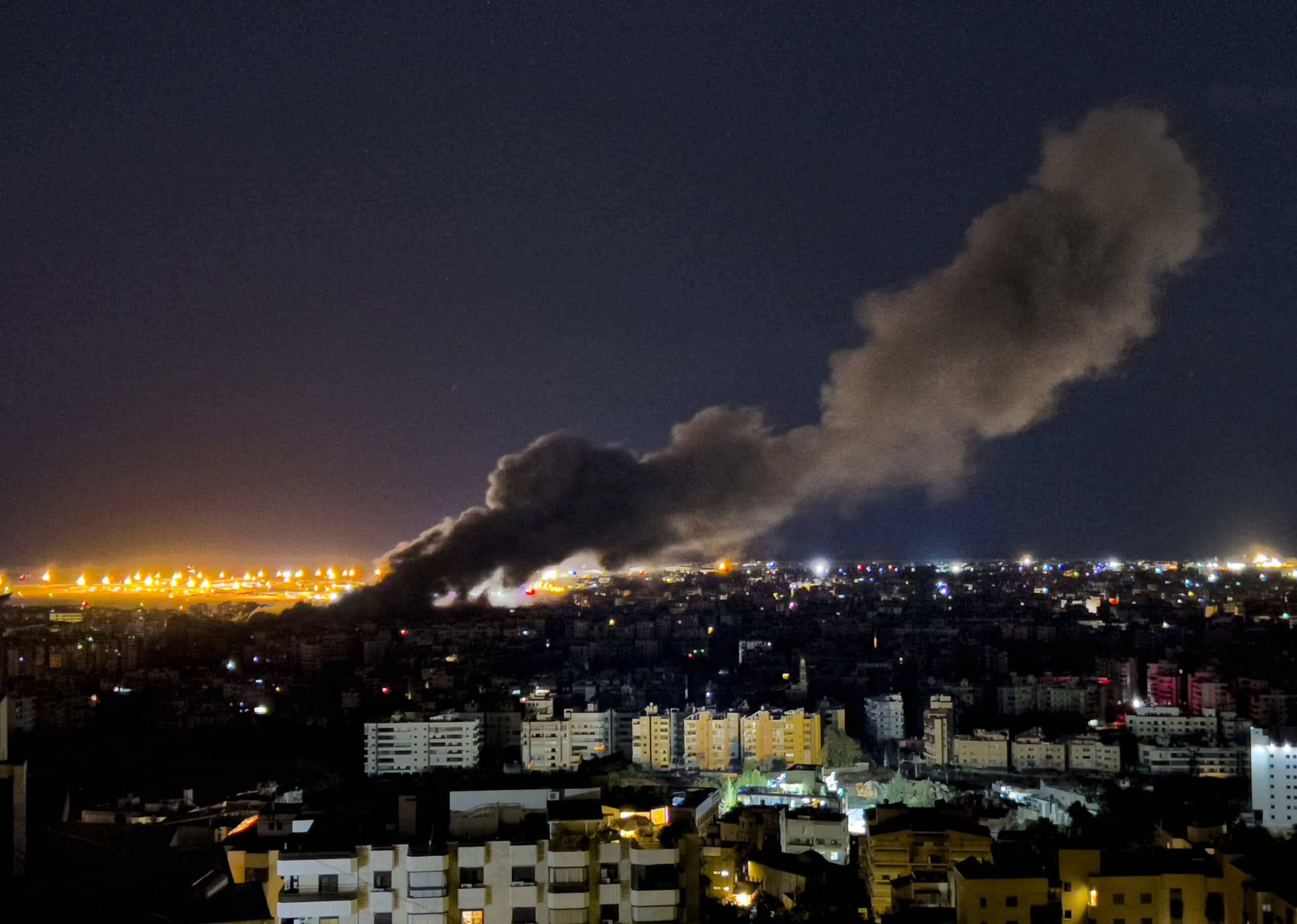
Smoke rises from an Israeli airstrike that hit the southern suburb of Beirut, Lebanon, Tuesday, Oct. 1, 2024. —AP Photo/Hussein Malla
MANILA, Philippines — The Department of Migrant Workers (DMW) on Wednesday said it gathered about 94 overseas Filipino workers (OFWs) and their families in safe areas outside of Beirut amid the escalating violence in the Middle East.
According to the DMW, 63 OFWs were evacuated from Dahieh town south of Beirut where Israel Defense Forces (IDF) bombed a base of the Iran-backed terror group Hezbollah and killed its leader Hassan Nasrallah.
“All OFWs were safe from the recent attacks and were immediately transferred [to] a hotel in Beit Mery, Lebanon, for temporary shelter at much safer grounds,” the DMW said in a statement.
READ: OFWs in Lebanon seek faster repatriation
Sixteen other Flipinos were also being housed in a facility rented in the same area by the Migrant Workers Office (MWO).
Beit Mery is a resort town just 16 kilometers outside Beirut and is within sight of the Mediterranean Sea.
Aside from the 79 OFWs, there were also 15 OFWs who were supposed to have been repatriated last Sep. 25, but major airlines shut down flights and hostilities escalated last weekend.
Three of them (one with a medical condition) were rescheduled to leave this Oct. 11 while the remaining 12 will join 17 other OFWs who are set to return to the Philippines on Oct. 22.
The DMW assured anxious relatives that a “contingency plan” is in place to repatriate Filipinos who want to return home, although none of the 94 have left the country.
There are 63 other OFWs with complete documentations and clearances are also being processed by the MWO to leave Lebanon because some Beirut offices have suspended operations.
“There are more than 100 OFWs awaiting clearance from the immigration authority, before they will be scheduled for repatriation,” the DMW said.
‘Contingency plan’
At a press briefing in Malacañang on Wednesday, DMW Undersecretary Bernard Olalia was clearer and more forthcoming.
“The challenge is that we do not have flights,” Olalia said, saying the agency was negotiating for a chartered flight to bring home about 300 OFWs from Lebanon.
But the DMW remained doubtful due to the possibility of a shutdown of the Beirut airport.
He said the government may end up evacuating OFWs from Lebanon via land and sea routes. The plan involved going through Damascus, although the OFWs were already within sight of the Mediterranean Sea.
“We have plotted an alternative, which is a land route to Damascus. Our personnel in the Middle East are on standby to provide augmentation help to the MWO in Lebanon on how our OFWs can be brought to safer grounds,” he said.
Olalia admitted the DMW’s struggles in securing chartered flights out of Lebanon, which has delayed the repatriation of about 300 who have expressed willingness to return to the Philippines.
“The other challenge there is to secure, of course, the landing rights of our chartered flight care of the [Migrant Workers’ Office] in coordination with the Lebanese government,” he said.
“The DMW is also studying the possibility of other routes. Apart from air route, we will be assessing the sea and the land route should the case or the situation there worsen,” Olalia added.
Olalia made the remark after Iran launched 180 ballistic missiles on Tel Aviv and Jerusalem in supposed retaliation of the IDF raid on Hezbollah hideouts in Beirut. IDF has also began ground operations in southern Lebanon on Monday.
No Filipinos hurt
Olalia said no Filipinos have so far been reported hurt when Iran launched rockets on Tel Aviv and Jerusalem on Wednesday.
But there has been no word from the government about the Filipinos held hostage by Iran-backed Houthi rebels who were supposedly held in Hodeidah in Yemen.
On Sunday, the IDF launched extensive attacks on power plants and the Hodeidah seaport, which is believed to be where Iran delivers war materials to Yemen.
Olalia, however, said the Philippine government would provide cash assistance of P150,000 for each OFW returning home from Lebanon.
The DMW is now providing shelter for 111 OFWs in Lebanon who are awaiting the release of their exit permits to be allowed to leave the country.
“The other challenge is the exit permits of some of our workers. Apart from documented OFWs, we have undocumented OFWs who need to secure travel documents,” he said.
The DMW also received reports of a few OFWs who were refused to be let go by their employers, Olalia said.
“There were employers who took and hid the OFW’s passport then left. We have already reached out to international organizations so that we can get in touch with these OFWs and we can rescue them,” he said.
The movement of DMW personnel was also limited by the roads littered with debris and the lack of public transport, Olalia said.

